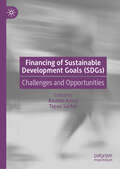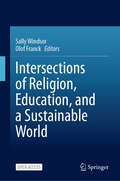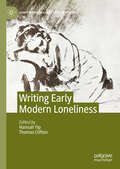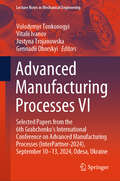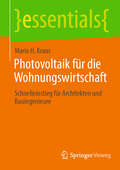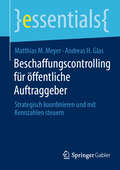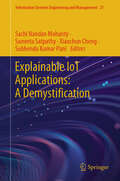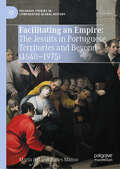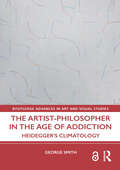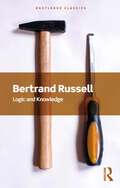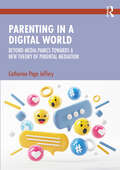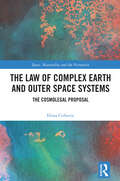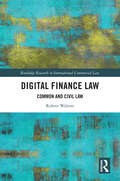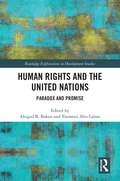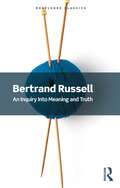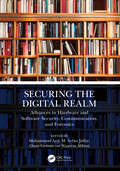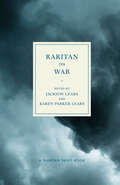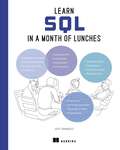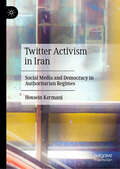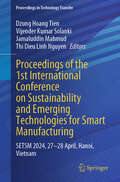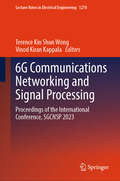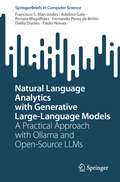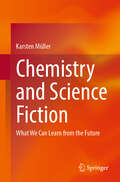- Table View
- List View
Financing of Sustainable Development Goals (SDGs): Challenges and Opportunities
by Tapan Sarker Rashmi AroraThe economic and social impact of Covid-19 pandemic both on developing and developed countries has been significant. In addition to the impact of the pandemic, the current Ukraine war has also led to severe supply chain disruptions leading to a sharp increase in food and commodity prices globally. Due to a combination of external shocks and the impact of the pandemic, global economic growth slowed down and is projected to continue to decline. The above factors have led to a sharp increase in government expenditure constraining both developed and developing countries' fiscal capacity. This has further implications for the achievement of SDGs, especially for low-income countries. The challenge for developing countries in the current scenario is to mobilize adequate resources both from domestic and international sources, not just for the achievement of SDGs as such, but also to sustain the livelihoods, health, and welfare of people. This book aims to examine some of these issues in the context of developing countries.
Intersections of Religion, Education, and a Sustainable World
by Olof Franck Sally WindsorThis open access volume contains up-to-date, informed perspectives on how sustainable development issues can be integrated into religious education. With a focus on issues that frequently appear in policy documents related to Education for Sustainable Development, this volume offers valuable guidance and research on how teacher education, didactics and pedagogy can be developed to better integrate these issues in religious education. The chapters include contributions from all over the world, thereby highlighting the importance of integrating the issue of environmental sustainability and sustainable development in all forms of religious education. This text appeals to educators, researchers and policy makers interested in the intersection of sustainability and religious education.
Writing Early Modern Loneliness (Early Modern Literature in History)
by Hannah Yip Thomas CliftonThis interdisciplinary collection of ten essays is the first to redefine historical conceptions of “loneliness” in the Western world by exploring its manifestation in early modern textual sources. Contrary to current scholarly consensus that loneliness in Britain was understood as an emotion from the late eighteenth century, only beginning to emerge in its literary form in the writings of the Romantic poets, the contributors in this volume argue that early modern people were capable of complex and conflicting feelings of social and emotional isolation which were expressed in a wide range of writings. Moreover, these products of loneliness continue to resonate poignantly with humanity today.
Advanced Manufacturing Processes VI: Selected Papers from the 6th Grabchenko’s International Conference on Advanced Manufacturing Processes (InterPartner-2024), September 10-13, 2024, Odesa, Ukraine (Lecture Notes in Mechanical Engineering)
by Vitalii Ivanov Justyna Trojanowska Volodymyr Tonkonogyi Gennadii OborskyiThis book offers a timely snapshot of innovative research and developments at the interface between design, manufacturing, materials, mechanical and process engineering, and quality assurance. It covers various manufacturing processes, such as grinding, turning, drilling, milling, broaching, and gear machining, including additive manufacturing, strengthening, electro-mechanical processing, vacuum technology, and deforming broaching. It focuses on computer and numerical simulation, mathematical and reliability modeling, and machine learning models for manufacturing systems and processes. It describes innovative cutting and abrasive processes and combined technologies. It also investigates the electrical resistance, self-sharping effect, strengthening, heat treatment, surface peening, and heat resistance of various coatings and materials. Gathering the best papers presented at the 6th Grabchenko’s International Conference on Advanced Manufacturing Processes (InterPartner-2024), held in Odesa, Ukraine, on September 10–13, 2024, this book provides a comprehensive and up-to-date examination of design, manufacturing, mechanical, materials, and process engineering, as well as quality assurance trends and technologies. It also aims to foster international and interdisciplinary communication and collaborations, offering a bridge between the academic and industrial sectors.
Photovoltaik für die Wohnungswirtschaft: Schnelleinstieg für Architekten und Bauingenieure (essentials)
by Mario H. KrausDie kurze Einführung in die Photovoltaik erleichtert die ersten Schritte bei der Planung einer PV-Anlage. Die wichtigsten Schwerpunkte werden beschrieben, Rechtsgrundlagen und Risikofaktoren benannt. Ein ausführliches Verzeichnis von Literatur und weiteren Quellen ist enthalten.
Beschaffungscontrolling für öffentliche Auftraggeber: Strategisch koordinieren und mit Kennzahlen steuern (essentials)
by Andreas H. Glas Matthias M. MeyerÖffentliche Auftraggeber sind zuständig für die Versorgung einer öffentlichen Organisation mit benötigten, aber nicht selbst hergestellten Gütern. Dabei unterliegen öffentliche Auftraggeber besonderen Rahmenbedingungen, wie dem Vergaberecht. Auch dadurch sind die Anforderungen z.B. hinsichtlich der Erreichung ökonomischer, ökologischer oder sozialer Nachhaltigkeitsziele anders als in der Privatwirtschaft. In Beschaffungsmärkten, welche zunehmend von Versorgungsengpässen, Komplexität und Dynamik geprägt sind, braucht das öffentliche Beschaffungsmanagement messbare Ziele und verlässliche Steuerungsinformationen. Dieses essential erläutert, wie ein Beschaffungscontrolling für öffentliche Auftraggeber aufgebaut sein kann und zeigt Wege auf, Ziele klar festzulegen und strategisch nach Kennzahlen zu steuern.
Explainable IoT Applications: A Demystification (Information Systems Engineering and Management #21)
by Suneeta Satpathy Sachi Nandan Mohanty Subhendu Kumar Pani Xiaochun ChengExplainable IoT Application: A Demystification is an in-depth guide that examines the intersection of the Internet of Things (IoT) with AI and Machine Learning, focusing on the crucial need for transparency and interpretability in IoT systems. As IoT devices become more integrated into daily life, from smart homes to industrial automation, it is increasingly important to understand and trust the decisions they make. The book starts by covering the basics of IoT, highlighting its importance in modern technology and its wide-ranging applications in fields such as healthcare, transportation, and smart cities. It then delves into the concept of explainability, stressing the need to prevent IoT systems from being perceived as opaque, black-box operations. The authors explore various techniques and methods for achieving explainability, including rule-based systems and machine learning models, while also addressing the challenge of balancing explainability with performance. Through practical examples, the book shows how explainability can be successfully implemented in IoT applications, such as in smart healthcare systems. Furthermore, the book addresses the significant challenges of securing IoT systems in an increasingly connected world. It examines the unique vulnerabilities that come with the widespread use of IoT devices, such as data breaches, cyberattacks, and privacy issues, and discusses the complexities of managing these risks. The authors emphasize the importance of implementing security strategies that strike a balance between fostering innovations and protecting user data. The book concludes with a comprehensive exploration of the challenges and opportunities in making IoT systems more transparent and interpretable, offering valuable insights for researchers, developers, and decision-makers aiming to create IoT applications that are both trustworthy and understandable.
Facilitating an Empire: The Jesuits in Portuguese Territories and Beyond (Palgrave Studies in Comparative Global History)
by Maria de Deus Beites MansoThis book explores the Jesuit order of its origins, historical evolution, missionary endeavors, and global dynamics, with a specific focus on Portugal and the challenges arising from changes in the former Portuguese Empire. The narrative unfolds in three parts, with the initial section exploring the foundation of the Jesuit order in 1540, approved by Pope Paul III. Examining the order's presence in Portugal, its connections with the Portuguese monarchy, and its educational initiatives, the exploration extends to a global Christianization mission aligned with crown and Roman interests. The second part shifts focus to Jesuit provinces beyond Europe, exploring regions with limited European presence through missionary action. Using a comparative and connected historical approach, the study analyzes missionary geography, identifying parallels and differences shaped by a "collective" dynamic involving the Society of Jesus, the crown, Rome, and diverse geographical dimensions. The third segment addresses the restoration of the Society of Jesus, particularly in Portugal, navigating global dynamics. The evolving landscape of the former Portuguese Empire necessitates a new contextualization, signifying the need for currently unfeasible investigations. The book will appeal for an academic audience with a specific interest in the detailed examination of the Jesuit order's history, its organizational structure, and its impact on missionary activities, both within Portugal and in regions with limited European presence.
The Artist-Philosopher in the Age of Addiction: Heidegger’s Climatology (Routledge Advances in Art and Visual Studies)
by George SmithGeorge Smith argues that modern humanity suffers from a late-stage, pre-fatal addiction to scientific-technological thinking. Like most pre-fatal addictions, this one will most likely result in one of three ways: misery, extinction, or human transformation. The question remains, wherein lies the third way?According to Smith, mankind’s chronic and as yet undiagnosed sickness originates in early Western metaphysics and has long been thoroughly globalized. It explains unstoppable extractionism and its relentlessly increasing by-product, carbon dioxide. It also explains today’s ever-increasing rate of species extinction and the increasingly likely collapse of the biosphere. Citing climate change tolerance and denial as symptomatic of pre-fatal addiction, Smith turns his analysis to Heidegger’s "question concerning technology" and shows that even Heidegger had become "hooked" on scientific-technological thinking. Surrendering to his disease, Heidegger "steps back" into "meditative thought." This in turn opens Heidegger to an East-West mode of scientific-poetic consciousness, the thinking of artist-philosophers such as Laozi, Hölderlin, and Rachel Carson. For Heidegger, this way of thinking lays the path to mankind’s transformative emancipation from an otherwise inescapable catastrophe.The book will be of interest to scholars of the arts and culture, histories of consciousness, and climate studies.
Logic and Knowledge (Routledge Classics)
by Bertrand RussellBertrand Russell's writings on logic, metaphysics, philosophy of language and epistemology are among the most influential of the twentieth century. Logic and Knowledge presents Russell's very best and most important work on these topics in a single volume, which by placing philosophical logic at its core was of monumental importance in shaping the path of analytical philosophy. It includes classics such as 'On Denoting', one of the founding pieces of philosophy of the twentieth century as well as chapters on logical atomism, a term coined by Russell himself to describe his view that the world consists in a plurality of independent entities, which by coming together form facts.Along with other essays on fundamental philosophical problems including the logic of relations, universals and particulars, and propositions, Logic and Knowledge shows why Russell remains one of the most important philosophers of the last century.This Routledge Classics edition includes a new Foreword by Graham Stevens.
Parenting in a Digital World: Beyond Media Panics Towards a New Theory of Parental Mediation
by Catherine Page JefferyThis book focuses on the challenges of parenting in the digital age, providing a counter-narrative to, and critique of, risk and cyber safety narratives, as well as some suggestions for a way forward.Drawing on qualitative research with Australian families, this book explores the knowledges, practices, anxieties and lived experiences of families themselves. It demonstrates that the realities of family life in the digital age are more complex than the headlines and cyber safety advice would have us believe, as parents grapple with balancing their own anxieties and social expectations about what it means to be a ‘good’ parent, with the practices, desires, and rights of their child. It addresses key questions including: How much attention should we pay to media headlines about the dangers of contemporary media? What is actually worrying Australian parents and how do they address these concerns? Why do young people love media so much? How capable are young people of actually managing online risk? What is the right way to parent in the digital age to ensure young people’s safety and wellbeing while minimising family conflict?Aimed at media studies scholars and students, as well as parents and policy makers seeking a more comprehensive understanding of the broader academic research surrounding young people, media and parenting, this book argues that parent and child knowledges, practices and experiences must be better accounted for within the online safety ecosystem as well as in policy development, and that families need encouragement and guidance to help them adopt more democratic approaches to parenting in the digital age.
The Law of Complex Earth and Outer Space Systems: The Cosmolegal Proposal (Space, Materiality and the Normative)
by Elena CirkovicThis book offers a paradigm-shifting exploration of lawmaking for the complex interactions between Earth systems and outer space. Drawing on complex systems science, posthuman approaches, and plural ontologies, the author proposes a reimagining of law and governance for the cosmic age. Through the “cosmolegal” perspective, this study embraces the inherent uncertainties and complexities of Earth-space interactions. From Arctic methane craters to orbital debris, the book weaves together scientific insights, landscape architecture, legal theory, and doctrine to address pressing environmental challenges that span Earth and beyond.While legal scholarship has increasingly engaged with Earth System Science, it typically treats outer space as distinct from Earth’s environment. However, Earth’s existence and complex systems are fundamentally intertwined with and emerge from outer space. This book argues that a legal framework for Earth’s systems needs to include outer space.At its core, the book advocates for a “complexification” of law, calling for greater epistemic humility in legal thought and practice. Thoughtful and provocative, this work invites readers to reconsider fundamental assumptions about law, nature, and agency beyond the human in an era of planetary change. The cosmolegal approach aims to shift legal imagination and understanding, positioning human law as just one of many actors within the cosmos.This original work will appeal to scholars of legal theory and environmental law, as well as those interested in posthumanism, ecology, and materialism.
Mysticism and Logic (Routledge Classics)
by Bertrand Russell“To abandon the struggle for private happiness, to expel all eagerness of temporary desire, to burn with passion for eternal things – this is emancipation, and this is the free man's worship.” —Bertrand RussellMysticism and Logic is one of Russell's most celebrated collection of essays. They not only set the tone for analytical philosophy in the English-speaking world but are Russell's first proper foray into the role of public philosopher, one he would occupy for years to come. Both scientific and romantic, Russell explores and unpacks, in his inimitable pellucid prose, some of the thorniest problems and puzzles in philosophy. These include different ways of knowing something, the foundations of mathematics, the ultimate nature of matter and whether, in Russell's view, we should seek a philosophical theory of causation.Taken together, they show the considerable changes that occurred in Russell's thinking during the years he was producing some of his best philosophy, leading up to World War One. Also included is Russell's renowned essay 'A Free Man's Worship', where he argues that we can construct a deeper form of faith based on the power of reason for those who wish to be free.This Routledge Classics edition includes a new Foreword by Bernard Linsky.
Digital Finance Law: Common and Civil Law (Routledge Research in International Commercial Law)
by Robert WaltersThis book assesses the rapidly changing landscape of digital finance regulation. Focusing on the laws of banking-finance, tax, insurance, intellectual property (patents and copyright) and international commercial arbitration, it also delves into the regulation of tokens and the laws pertaining to its development, use, and transaction.The book undertakes a comparative study of civil and common law jurisdictions such as Australia, India, Japan, Singapore, United Kingdom, European Union, and the United States. It explores how each jurisdiction is at various stages of developing its digital economy and providing banking and financial regulations for crypto-digital assets such as tokens. It also highlights the potential for global regulatory change and collaboration, such that there is a robust, efficient, and harmonised framework of standards, codes and law. The book asserts that blockchain technology will be a disruptive force to commercial law and will be important to taxation and insurance laws (smart contracts), as well as the technology that supports them. Due to the rapid transformation in regulatory landscape, the laws compared were as at November 2024. Since then there have been changes. It also expands on how international arbitration agreements will require more extensive knowledge on data and cybersecurity due to the use of expert evidence that involves blockchain, code, and cybersecurity, amongst other technological elements that facilitate smart contracts and token transactions.A book of keen interest to scholars of finance law, digital finance, and comparative law, as well as legal practitioners.
Human Rights and the United Nations: Paradox and Promise (Routledge Explorations in Development Studies)
by Yasmeen Abu-Laban Abigail B. BakanThis book considers the complex and contradictory role of the United Nations when it comes to human rights around the world. It depicts the United Nations as a global arena in which state and non-state actors continuously contest issues around human rights. This ongoing contestation simultaneously produces both advances and setbacks when it comes to the rights of stateless populations, women, Indigenous peoples, and racialized people, as well as rights related to health and the environment.Since the 1948 Universal Declaration of Human Rights and throughout various subsequent expansions, conventions and declarations, the United Nations has been central to the development and advancement of human rights as a primary, stated goal of global governance. However, there are various inherent contradictory tensions and challenges embedded in the United Nations promise for human rights. This timely collection investigates the United Nations’ role as knowledge producer, its relation to non-state actors, and the United Nations’ role as a system for grouping sovereign states, where there is uneven buy-in within non-binding agreements and tensions between national sovereignty and human rights. At a time when the world faces existential challenges from climate change to pandemics which disproportionately impact the world’s most vulnerable populations, this book addresses future challenges and possibilities for the United Nations.Human Rights and the United Nations: Paradox and Promise will be an important read for researchers and students across the fields of human rights, political science, international relations, and global development, as well as for United Nations and governmental policy analysts and advisors.
An Inquiry Into Meaning and Truth (Routledge Classics)
by Bertrand RussellIn An Inquiry Into Meaning and Truth, Bertrand Russell returns to philosophy after a long period of writing about education, religion and marriage. Investigating how we can be justified in what we know and how we can reconcile knowledge of the physical world with immediate sensory knowledge, Russell sets out to reconcile the various aspects of his thought since his early logicist period—the view that mathematical truths are ultimately logical truths.Russell's goal is to stress-test empiricism in light of contemporary developments in logic and language or, as Russell himself succinctly puts it, "to combine a general outlook akin to Hume's with the methods that have grown out of modern logic". His quest combines three strands: metaphysical, epistemological and linguistic.Both a fascinating insight into Russell’s evolving views and the continuity of his thinking over the years, it also foreshadows many future debates which came to occupy centre stage within English-speaking philosophy: debates about realism and anti-realism, the viability of pragmatism as a philosophical theory and the perennial opposition between holism and atomism.This Routledge Classics edition includes a new Foreword by Pascal Engel, placing Russell's book in helpful philosophical context.
Securing the Digital Realm: Advances in Hardware and Software Security, Communication, and Forensics
by Oana Geman Muhammad Arif M. Arfan Jaffar Waseem AbbasiThis book, Securing the Digital Realm: Advances in Hardware and Software Security, Communication, and Forensics, is a comprehensive guide that explores the intricate world of digital security and forensics. As our lives become increasingly digital, understanding how to protect our digital assets, communication systems, and investigate cybercrimes is more crucial than ever. This book begins by laying a strong foundation in the fundamental concepts of hardware and software security. It explains the design of modern computer systems and networks to defend against a myriad of threats, from malware to data breaches, in clear and accessible language.One of the standout features of this book is its coverage of cutting-edge technologies like blockchain, artificial intelligence, and machine learning. It demonstrates how these innovations are used to enhance digital security and combat evolving threats.Key features of the book include: Comprehensive coverage of digital security, communication, and forensics Exploration of cutting-edge technologies and trends Emphasis on digital forensics techniques and tools Coverage of ethical and legal aspects of digital security Practical guidance for applying cybersecurity principles Additionally, the book highlights the importance of secure communication in the digital age, discussing encryption, secure messaging protocols, and privacy-enhancing technologies. It empowers readers to make informed decisions about protecting their online communications. Written by experts in the field, this book addresses the ethical and legal dimensions of digital security and forensics, providing readers with a comprehensive understanding of these complex topics. This book is essential reading for anyone interested in understanding and navigating the complexities of digital security and forensics.
Raritan on War: An Anthology (Raritan Skiff Books)
by Michael Miller Robert Westbrook Andrew J. Bacevich Elizabeth D. Samet David Ferry Karl Kirchwey Tamas Dobozy Jochen Hellbeck Victoria De Grazia Sherod Santos Patrick Lawrence Lyle Jeremy Rubin C. Felix Amerasinghe M. Fortuna Cai Guo-Qiang Emma Dodge Hanson Ray Klimek Peter LaBier D. Mark LevittWe are, once again, a world at war. Geopolitical elites are deploying the implacable forces of ethnocentric hatred and religious nationalism; ordinary people are paying a fearful price. Not for the first time: this has been the characteristic pattern of war for more than a century. Every selection in this anthology (except for the timeless Aeneid) casts light on modern war, observed or directly experienced. Most are grounded in particular places—Stalingrad, Halberstadt, Budapest, Baghdad, Algiers, the Tamil ghost towns of Sri Lanka, the six-by-twelve-foot cell in Belmarsh maximum security prison where Julian Assange is held without bail for the act of revealing U.S. war crimes. Some recapture the actual look and feel of war—the sight of a seven-year-old girl clutching her mother's hand, dodging explosions in the Halberstadt public square; the sound of a Mozart concerto in D Minor, heard by a family hiding in a cave, played on their own piano by a Serbian sniper. Others take aim at the vast and vapid abstractions used to justify armed conflict, down to and including the use of nuclear weapons. Raritan on War collects some of the finest writing on that troubling subject published in Raritan Quarterly between 2003 and 2022. The editors, Jackson Lears and Karen Parker Lears, have selected work that typifies Raritan's wide-ranging sensibility, focusing on a topic that is aesthetically rich, intellectually challenging, and morally disturbing. Ultimately, Raritan on War reveals the power of art and reflection to sustain humane ways of being in the world, even amid constant global violence. Contributors: C. Felix Amerasinghe; Andrew J. Bacevich; Victoria De Grazia; Tamas Dobozy; David Ferry; M. Fortuna; Cai Guo-Qiang; Emma Dodge Hanson; Jochen Hellbeck; Karl Kirchwey; Ray Klimek; Peter LaBier; Patrick Lawrence; d. mark levitt; Michael Miller; Lyle Jeremy Rubin; Elizabeth D. Samet; Sherod Santos; Robert Westbrook
Learn SQL in a Month of Lunches (In a Month of Lunches)
by Jeff IannucciUse SQL to get the data you need in no time at all! Learn to read and write basic queries, troubleshoot common problems, and control your own business data in just 24 short lessons–no programming experience required!SQL has been designed to be as close to English as possible—anyone can learn it! Learn SQL in a Month of Lunches helps you add this lucrative and highly sought-after skill to your resume in just 24 fun and friendly lessons. The book emphasizes practical uses for the language in the real-world, so you&’ll just learn the most useful skills for business data analysis. Inside Learn SQL in a Month of Lunches you&’ll discover how to: • Set up your first database with MySQL • Write your own SQL queries • See only the data you need from large datasets • Connect different sets of data • Analyze data with functions and aggregations • Master basic data manipulation techniques • Save queries in stored procedures and views • Create tables to store data efficiently • Read and improve SQL written by others If you use Excel, Tableau, or PowerBI to crunch business data, you&’ve probably seen a lot of SQL already. And guess what? It&’s easy to master the most useful parts of SQL! In just a few quick lessons, Learn SQL in a Month of Lunches will get you writing your own queries, modifying existing SQL statements, and working with data like a pro. 25-year SQL veteran Jeff Iannucci makes SQL a snap through hands-on lab exercises, relevant code examples, and easy-to-understand language. About the technology SQL, Structured Query Language, is the standard way to query, create, and manage relational databases like SQL Server, PostgreSQL, and Oracle. It&’s also a superpower for data analysts who need to go beyond spreadsheets and BI dashboarding tools. SQL is easy to read and understand, and with this book (and a little practice) you&’ll be pulling data, tweaking tables, and cranking out amazing reports and presentations in no time at all! About the book Learn SQL in a Month of Lunches introduces SQL to data analysts and other aspiring data pros with no prior experience using relational databases. In it, you&’ll complete 24 short lessons, each of which teaches an essential SQL skill for retrieving, filtering, and analyzing data. You&’ll practice each new technique with a friendly hands-on lab designed to take about 15 minutes, as you learn to write queries that deliver the exact data you need. Along the way, you&’ll build a valuable intuition for how databases operate in real business scenarios. What's inside • Get the data you need from any relational database • Filter, sort, and group data • Combine data from multiple tables • Create, update, and delete data About the reader For students, aspiring data analysts, software developers, and anyone else who wants to work with relational databases. About the author Jeff Iannucci is a Senior Consultant with Straight Path Solutions. For over 20 years, he has worked extensively with SQL in sectors such as healthcare, finance, retail sales, and government. Table of Contents 1 Before you begin 2 Your first SQL query 3 Querying data 4 Sorting, skipping, and commenting data 5 Filtering on specific values 6 Filtering with multiple values, ranges, and exclusions 7 Filtering with wildcards and null values 8 Querying multiple tables 9 Using different kinds of joins 10 Combining queries with set operators 11 Using subqueries and logical operators 12 Grouping data 13 Using variables 14 Querying with functions 15 Combining or calculating values with functions 16 Inserting data 17 Updating and deleting data 18 Storing data in tables 19 Creating constrai
Twitter Activism in Iran: Social Media and Democracy in Authoritarian Regimes
by Hossein KermaniThis book investigates Twitter activism in authoritarian regimes, with particular attention to Iran. Twitter provides citizens around the globe with a free and quick way to engage in politics and public discourses. The role of Twitter, alongside other social media, is even more critical in authoritarian regimes where official media is systematically monitored and censured. Thus, social media is vital in restrictive (non-democratic) societies for people to seek their liberty, raise their voice, and create counter-narratives and discourses. There is substantial research into Twitter and democracy, both in democratic and non-democratic regimes. However, Iran, as a country with a high population of tech-savvy users who actively participate in political discussions online, remains understudied to a great extent. Twitter in Iran has been blocked since the 2009 presidential election and its subsequent protests, the Green Movement. Nevertheless, Iranians have been continually using it to date.Recently, another significant hashtag movement unfolded in Iran after the death of Mahsa Amini. But it is only an instance of how Iranians employ Twitter to fight a dictatorship. Given the unique context of Iran as a non-democratic society with a high number of Twitter users, this book tries to explore how Iranian users participate in politics, challenge the regime, mobilize their protests, and shape anti-regime discourses. It also examines the strategies that the Iranian regime takes to dismantle Twitter activism. Therefore, this work will fill some gaps in the existing literature on Twitter and democracy, which is relatively Western-centered.
Proceedings of the 1st International Conference on Sustainability and Emerging Technologies for Smart Manufacturing: SETSM 2024, 27–28 April, Hanoi, Vietnam (Proceedings in Technology Transfer)
by Vijender Kumar Solanki Thi Dieu Linh Nguyen Dzung Hoang Tien Jamaluddin MahmudThis book presents peer-reviewed articles from the 1st International Conference on Sustainability and Emerging Technologies for Smart Manufacturing (SETSM 2024) held on 27–28 April at Hanoi in Vietnam. It includes the latest research and innovations in Sustainability and emerging technologies for Smart Manufacturing and Industry 4.0, especially innovative solutions for development of sustainable and smart eco-systems for a wide range of applications in industries, health care, and medicine.
6G Communications Networking and Signal Processing: Proceedings of the International Conference, SGCNSP 2023 (Lecture Notes in Electrical Engineering #1270)
by Terence Kin Shun Wong Vinod Kiran KappalaThis book includes peer-reviewed papers of the International Conference on 6G Communications Networking and Signal Processing-SGCNSP 2023. This book focuses on conceptual frameworks that help understand the basics of electronics, electrical, and communication. It also provides an overview of the upcoming advanced technologies supporting 6G signal processing, communication systems and networks, mobile and wireless networks, and RF and optical communication. This book is useful for undergraduate and postgraduate students and research scholars.
Proceedings of the Second International Conference on Artificial Intelligence and Communication Technologies: Network Technologies, AI and DL, Volume 2 (Smart Innovation, Systems and Technologies #425)
by Lakhmi C. Jain Srikanta Patnaik Kazumi Nakamatsu Roumiana KountchevaThis book gathers selected papers presented at the International Conference on Artificial Intelligence and Communication Technologies (ICAICT2024), held at Shenzhen, China during June 2024. The book focuses on the newest methods and algorithms in smart wireless communications in the areas of remote sensing and machine learning, intelligent image and data processing, health systems and security, intelligent teaching applications, and many others.
Natural Language Analytics with Generative Large-Language Models: A Practical Approach with Ollama and Open-Source LLMs (SpringerBriefs in Computer Science)
by Paulo Novais Dalila Durães Francisco S. Marcondes Adelino Gala Renata Magalhães Fernando Perez de BrittoThis book explores the application of generative Large Language Models (LLMs) for extracting and analyzing data from natural language artefacts. Unlike traditional uses of LLMs, such as translation and summarization, this book focuses on utilizing these models to convert unstructured text into data that can be processed through the data science pipeline to generate actionable insights. The content is designed for professionals in diverse fields including cognitive science, linguistics, management, and information systems. It combines insights from both industry and academia to provide a comprehensive understanding of how LLMs can be effectively used for natural language analytics (NLA). The book details practical methodologies for implementing LLMs locally using open-source tools, ensuring data privacy and feasibility without the need for expensive infrastructure. Key topics include interpretant, mindset and cultural analysis, emphasizing the use of LLMs to derive soft data—qualitative information crucial for nuanced decision-making. The text also outlines the technical aspects of LLMs, including their architecture, token embeddings, and the differences between encoder-based and decoder-based models. By providing a case study and practical examples, the authors show how LLMs can be used to meet various analytical needs, making this book a valuable resource for anyone looking to integrate advanced natural language processing techniques into their data analysis workflows.
Chemistry and Science Fiction: What We Can Learn from the Future
by Karsten MüllerThis book aims to introduce students (and other interested laypeople) to chemistry in a fun way, using examples from science fiction. The individual chapters are deliberately kept short to enhance readability. The book can especially be used as supplementary reading for lectures in chemistry and related disciplines.
